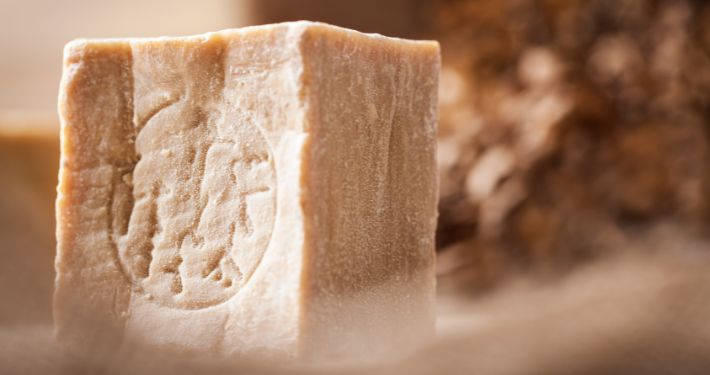24 May 2025
22 May 2025
The Power of NatureDerived from Laurus nobilis berries using traditional Syrian methods, Laurel Berry Oil is a cornerstone of ancient Aleppo soap. Rich in Eucalyptol and potent antioxidants, this oil provides powerful natural cleansing, antiseptic, and anti-inflammatory action, making it ideal for soothing troubled skin (acne, eczema, psoriasis) and promoting scalp health. While traditional medicine hints at internal wellness uses for the laurel plant, this oil is primarily valued topically for its purifying and calming effects, connecting modern users to centuries of natural skincare wisdom. Always use diluted or within formulations like Aleppo soap.

Imagine the ancient city of Aleppo, a crossroads of trade and culture, where the air hums with the legacy of artisans. For centuries, this city has been synonymous with a unique, revered soap, crafted with olive oil and the precious oil of the laurel berry. Syrian Laurel Oil, derived from the noble Laurus nobilis tree – the same laurel whose leaves crowned victors in ancient Greece and Rome – carries an aroma that is both herbaceous and subtly spicy, evoking a sense of clean purity and resilience. This isn't just an oil; it's a connection to centuries of natural cleansing rituals, skincare wisdom, and traditional wellness practices from the Levant, offering potent antiseptic skin care benefits.
Beyond its role in the iconic Aleppo soap, Syrian Laurel Oil stands as a testament to the power of traditional extraction methods that preserve the plant's potent essence. Its unique profile offers a multitude of benefits, not only for maintaining healthy skin and scalp but also holding a place in traditional medicine for internal wellness support. Let's delve into the history, science, and practical uses of this remarkable botanical treasure, understanding why its anti-inflammatory oil properties and rich heritage remain relevant in modern natural wellness, both inside and out.
What is Syrian Laurel Oil (Laurus Nobilis)?
Syrian Laurel Oil, also known as Laurel Berry Oil, is extracted from the berries of the Laurus nobilis tree, commonly known as the Bay Laurel. This evergreen tree, native to the Mediterranean, is steeped in history and mythology, symbolizing victory, wisdom, and protection. The oil itself is typically dark green and possesses a characteristic fresh, somewhat medicinal, and spicy aroma, rich in compounds like Eucalyptol.
- Botanical Name & Origin: Laurus nobilis. Native to the Mediterranean region, its use in oil form is strongly associated with Syria and the traditional craftsmanship of Aleppo soap.
Historical Significance & Traditional Uses of Laurel Berry Oil
The use of Laurus nobilis dates back thousands of years. In ancient Greece and Rome, laurel wreaths adorned heroes, poets, and emperors. Beyond symbolism, the plant was recognized for its medicinal properties. The oil, particularly in the context of Aleppo soap (one of the oldest soaps in the world), became a staple for cleansing and skin health throughout the Middle East and eventually Europe. Traditionally, various parts of the laurel plant, including the berries and leaves (often as infusions or decoctions, not necessarily the concentrated oil), were also used internally to aid digestion, relieve flatulence, support respiratory health (as an expectorant), and soothe rheumatic pains. Its journey along ancient trade routes highlights its enduring value as both a practical necessity and a luxurious commodity for both external care and traditional wellness.
The Source of Laurel Oil's Power
Syrian Laurel Oil possesses a complex chemical profile that contributes to its diverse benefits, influencing both topical and potential internal effects:
- Fatty Acids: Rich in Oleic acid (Omega-9) and Linoleic acid (Omega-6), providing moisturizing and barrier-supporting properties for the skin.
- Volatile Compounds: Contains significant amounts of Eucalyptol (1,8-cineole), known for its fresh scent and antiseptic/expectorant qualities. Other compounds like Eugenol and Caryophyllene contribute to its aroma and anti-inflammatory effects.
- Polyphenols & Antioxidants: Includes various phenolic compounds like caffeic acid derivatives, flavonoids (apigenin, quercetin, kaempferol), and tannins, which offer potent antioxidant protection against free radical damage, relevant both topically and potentially internally.
- Trace Elements: Contains various minerals beneficial for overall health.
Syrian Laurel Oil for Radiant Beauty
Syrian Laurel Oil offers significant advantages for external applications, particularly for skin and scalp health.
Hair Health Benefits
While traditionally valued for scalp care, scientific focus often leans towards its skin benefits. However, its properties translate well to hair and scalp health:
- Promotes Scalp Health: The oil's potent antimicrobial and antifungal properties help combat microbes that can lead to scalp issues like dandruff or folliculitis, creating a healthier environment for hair growth.
- Soothes Scalp Irritation: Its anti-inflammatory compounds can help calm itching, redness, and irritation associated with conditions like eczema or psoriasis on the scalp.
- Moisturizes Scalp and Hair: The fatty acid content helps to moisturize a dry scalp and can add suppleness to hair strands, reducing dryness and potential breakage.
Skin Health Benefits
Laurel Oil truly shines in skincare, leveraging its traditional use and scientifically validated properties:
- Powerful Natural Cleansing: Its antiseptic and antimicrobial actions make it highly effective for natural cleansing of the skin, helping to manage acne-causing bacteria and prevent breakouts. This is a key reason for its inclusion in Aleppo soap.
- Soothes Inflamed Skin: The anti-inflammatory properties are beneficial for calming various skin conditions, including dermatitis, eczema, and psoriasis, reducing redness and discomfort.
- Supports Wound Healing: Traditional use and antimicrobial properties suggest it can aid in the healing of minor cuts, sores, or insect bites by keeping the area clean and reducing inflammation.
- Antioxidant Protection: The rich polyphenol content helps protect skin cells from oxidative stress caused by environmental factors, contributing to overall skin health and potentially slowing visible signs of aging.
- Moisturizing: While cleansing, its fatty acids also provide essential moisture, preventing the skin from feeling stripped or overly dry.
Potential Wellness Benefits
Beyond its topical applications, Laurus nobilis holds a place in traditional medicine for internal wellness, although the concentrated oil itself is less commonly used internally than infusions or decoctions of the leaves or berries.
- Digestive Support: Traditionally, laurel preparations were used to stimulate appetite, relieve indigestion, and reduce flatulence. Some research suggests potential benefits for gut health, possibly promoting beneficial bacteria.
- Respiratory Relief: The presence of Eucalyptol suggests expectorant properties. Traditional uses include aiding relief from coughs, colds, and congestion, often through inhalation or chest rubs (using diluted essential oil, not necessarily the berry oil).
- Pain and Inflammation Relief: Anti-inflammatory compounds like Caryophyllene support traditional use for rheumatic pain, muscle aches, and joint discomfort, applied topically but potentially hinting at systemic effects if used internally in appropriate forms.
- Antioxidant & Immunomodulatory Potential: The rich antioxidant profile may contribute to overall health by combating oxidative stress. Some studies suggest potential immunomodulatory effects, influencing immune system activity.
- Important Note on Internal Use: The information above relates primarily to traditional uses of the Laurus nobilis plant, often in forms other than the concentrated berry oil. Syrian Laurel Oil, especially as sold for cosmetic use (e.g., in Aleppo soap), is unequivocally NOT intended for internal consumption. Internal use of any laurel preparation (leaves, berries, essential oil) should only be considered under the strict guidance of a qualified healthcare professional or traditional medicine practitioner who can advise on appropriate forms, dosages, and safety, particularly considering potential toxicity if used improperly.
How to Use Syrian Laurel Oil Safely and Effectively
Given its potency, Syrian Laurel Oil is typically used as an ingredient rather than applied neat, primarily topically.
Topical Application (Skin & Hair)
- For Hair: Look for shampoos or scalp treatments containing Laurel Oil, particularly traditional Aleppo soap bars (which can be used on hair). You could potentially add a very small amount (a few drops) to a carrier oil for a targeted scalp massage, but patch testing is essential due to its potency.
- For Skin: The most common use is in Aleppo soap. The percentage of laurel oil varies (from 5% to over 40%); higher percentages are generally recommended for oily or troubled skin, while lower percentages are gentler for dry or sensitive skin. It can also be found in specialized balms or salves for targeted application on problem areas.
- Aromatic Use: The aroma from products containing laurel oil might offer some respiratory comfort or mental clarity, reflecting traditional uses.
Embracing the Holistic Power of Syrian Laurel Oil
Syrian Laurel Oil is more than just an ingredient; it's a connection to ancient wisdom and artisanal tradition. Its potent blend of cleansing, soothing, and protective compounds, preserved through heritage extraction methods, makes it a remarkable ally for achieving clear, calm skin and a healthy scalp. While its traditional internal uses hint at broader wellness potential, its primary modern application lies in harnessing its topical benefits safely and effectively. Whether experienced through the timeless ritual of using Aleppo soap or in modern targeted formulations, Laurel Berry Oil offers a touch of history and the pure, resilient power of nature for holistic care.
Important Considerations & Safety
- Patch Testing: Always perform a patch test before using any product containing Laurel Oil topically, especially if you have sensitive skin.
- Sensitivity: The volatile compounds can cause irritation in some individuals. Discontinue use if irritation occurs.
- Avoidance: Keep away from eyes, mucous membranes, and broken or significantly irritated skin.
- Internal Use Caution: Reiterate strongly: Cosmetic grade Syrian Laurel Oil is for external use ONLY. Never ingest it. Consult qualified professionals before considering any internal use of Laurus nobilis preparations.
Start Your Journey
.png)

.png)
.png)